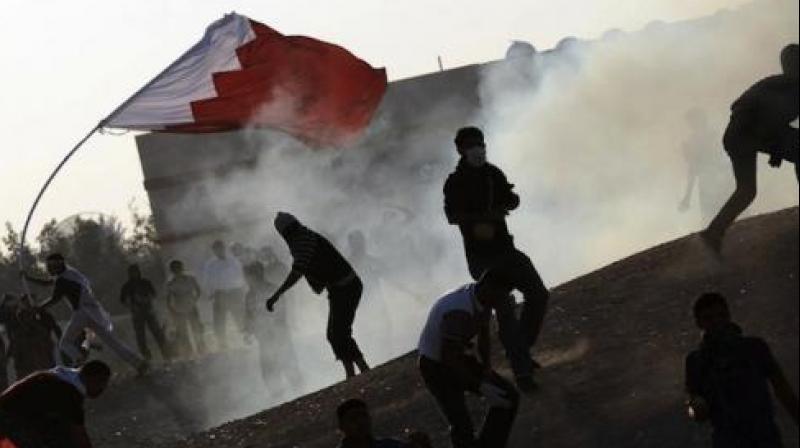US scolds Bahrain for execution of three Shiites

Washington: The United States on Tuesday scolded its ally Bahrain over the recent executions of three Shiites who had been sentenced to death for a deadly bomb attack on police.
The executions have ignited major demonstrations and rekindled tensions between the Shiite majority and Sunni rulers of the Persian Gulf kingdom, which have concerned Washington since a crackdown on an uprising in 2011.
The kingdom is a strategic ally of the US and home to the US Navy's Fifth Fleet.
Bahrain's High Court last week upheld the death sentences against the trio convicted of a bomb attack in March 2014 which killed three policemen, including an officer from the United Arab Emirates.
"We're concerned that these executions occurred at a time of elevated tension in Bahrain," US State Department spokesman John Kirby said. "Violent attacks against the police are reprehensible, of course, and deserve condemnation."
"We've also seen allegations that the individuals facing execution were victims of torture, and that the evidence used against them in court was extracted, in part, through coerced confessions."
Bahrain, which has been ruled by the Al-Khalifa dynasty for more than two centuries, has a majority Shiite population that has long complained of marginalization.
"We continue to call on the Government of Bahrain to return urgently to the path of reconciliation, and to work collectively to address the aspirations of all Bahrainis," Kirby said.
"This, we believe, is the best way to marginalize those who support violence and bring greater security and stability to the region."
Protests broke out on Sunday after the executions, reportedly the first carried out in Bahrain in six years.
The executions were criticised by international rights groups, as well as Britain and the European Union. Shiite-dominated Iran and the Lebanese Shiite movement Hezbollah also strongly condemned the executions.
The outgoing US Secretary of State John Kerry made an exceptional visit last April to Manama, telling authorities there that "respect for human rights and an inclusive political system are essential."

